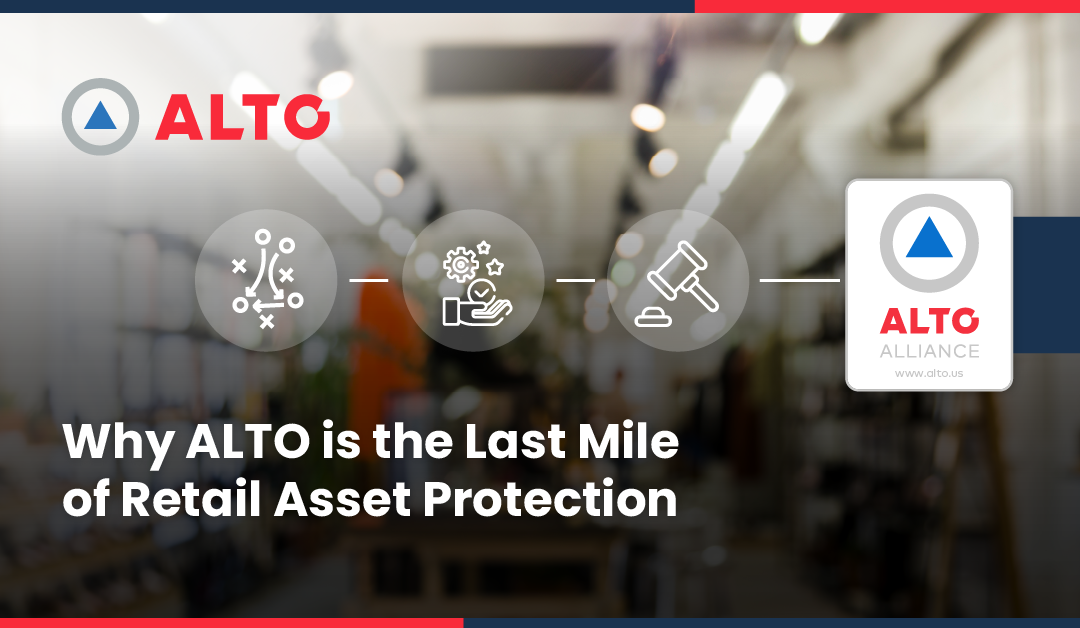Retailers do not operate in a vacuum. We can think of the individual store and the community in which it exists as an “ecosystem.” In that ecosystem, hundreds of factors affect the experience of the customers, employees, and, ultimately, sales. We do our best in loss prevention to be up to date and knowledgeable about the store ecosystem. The truth is, we do not know exactly what is happening out there. Yes, there is a disconnect. Even with the newest technology, it’s difficult to be plugged into what’s truly going on in a store.
As we continue to expand in the US, ALTO is gathering information in order to build partnerships between retailers, law enforcement, prosecutors, and their communities. ALTO wants to give back to the industry and share some of our learnings along the way. This series of articles will provide actionable information into what is truly happening in stores. We will share legal updates from our staff attorneys, stories from the frontlines, tips, and behind-the-scenes glimpses that will surprise you. We’re all in this together, so let’s learn together as well.
In this edition, ALTO’s Chicago market Staff Attorney C. J. Orrantia, JD, fills us in on some of the legal changes coming to Illinois that will affect retailers.
Criminal Justice Reform in Illinois
On February 22, 2021, Illinois Governor J. B. Pritzker signed H.B. 3653, known as the “Criminal Justice Reform Bill,” into law. Pritzker announced that the bill would reform pretrial detention, expand training and wellness programs for law enforcement, and modernize sentencing laws. Proponents presented the bill as a step toward ending systemic racism, in response to the high-profile violent incidents involving law enforcement and minorities in 2020. Law enforcement groups criticized the bill, characterizing
it as an anti-police measure that would hinder the ability of law enforcement to do its job.
Many of the bill’s provisions went into effect on July 1, 2021. The bill is massive and adds new laws or changes existing ones. Regardless of perspective on the bill, there is no doubt that it will change how the criminal justice system works and how law enforcement will operate in Illinois. Therefore, it is important that retailers pay close attention to some of the changes so they can adjust their loss prevention policies accordingly.
Many of the bill’s measures, such as abolishing bail or changing the use-of-force standards, have made headlines. Other changes have received less attention. One of the less-covered changes governs law enforcement’s ability to arrest that will take effect on January 1, 2023.
Custodial Arrests
The bill places limits on when and for what law enforcement can place people into custodial arrest. Previously, law enforcement in Illinois could take offenders into custody for any offense, including petty ones. The bill changes this authority by generally directing law enforcement to issue citations to offenders for misdemeanors, like criminal trespass. What this means for retailers is that police will generally be precluded from taking offenders into custody for certain minor offenses.
There is an exception based on health and safety that will allow officers to arrest offenders. Still, it is likely that police departments will err on the side of issuing citations for minor offenses rather than try to determine at the scene whether an exception allowing for custodial arrest applies.
This change has the potential to have a massive impact on retailers. Police will continue to have authority to place retail theft offenders into custody. Therefore, retailers may not see a difference when calling police regarding retail theft, especially retailers who have a “hands off” policy where retail theft is usually reported after the fact.
However, retailers may need to adjust policies when they are confronted by an offender who is generally disruptive or an offender who refuses to leave after being asked to do so. Soon, police will be limited in when they can physically remove such offenders, and that is the space where retailers may need to adjust policies.



